Trafficking Isn’t What You Think: Myths, Missing Youth and the Power of Paying Attention
Learn the truth behind 3 major human trafficking myths and find out how to make a real difference in your community.

Learn the truth behind 3 major human trafficking myths and find out how to make a real difference in your community.

If your kids are still on summer sleep schedules, this guide to back-to-school sleep routines will help you reset things before the first day.

Wondering if it’s worth it to keep up swim lessons? Learn how long-term swim lessons lead to real progress and lasting confidence!

A nurse from AdventHealth University Tampa is sharing expert tips on how to recognize and nurture the caregiving instincts in kids!
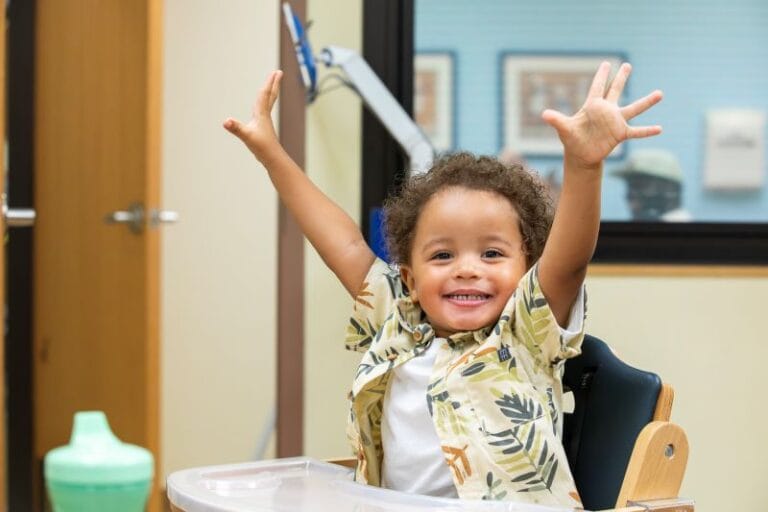
Discover how doctors at Johns Hopkins All Children’s Hospital helped Pediatric Gastroenterology patient, Quest, find much needed relief.

Discover why you should spend your summer at the Y: your community hub, wellness center and summer playground all in one!

Learn how a few simple drowning prevention tips can help keep your kids safe and give you peace of mind around the water.

Dr. Morris from Imagine Orthodontic Studio is sharing everything you need to know about braces – and why they’re not just for kids!

Hurricane season is upon us again, and we’re catching up with ABC Action News Chief Meteorologist, Denis Phillips, to help us understand what to be prepared for and how he turned his famous “Rule #7” catchphrase into a way to help others in need.

The Environmental Working Group has released its 2025 Guide to the best sunscreens. See if yours made the list!

Ronald McDonald House Charities (RMHC) has partnered with St. Joseph’s Women’s Hospital to open a new house in the hospital, expanding its ability to serve even more families in the Tampa Bay area.
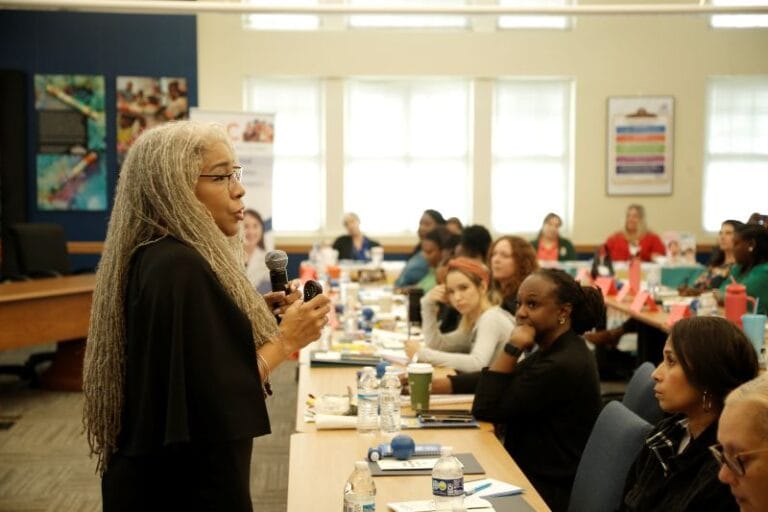
Read about a local event that put maternal health in the spotlight with expert talks, workshops, and family support.
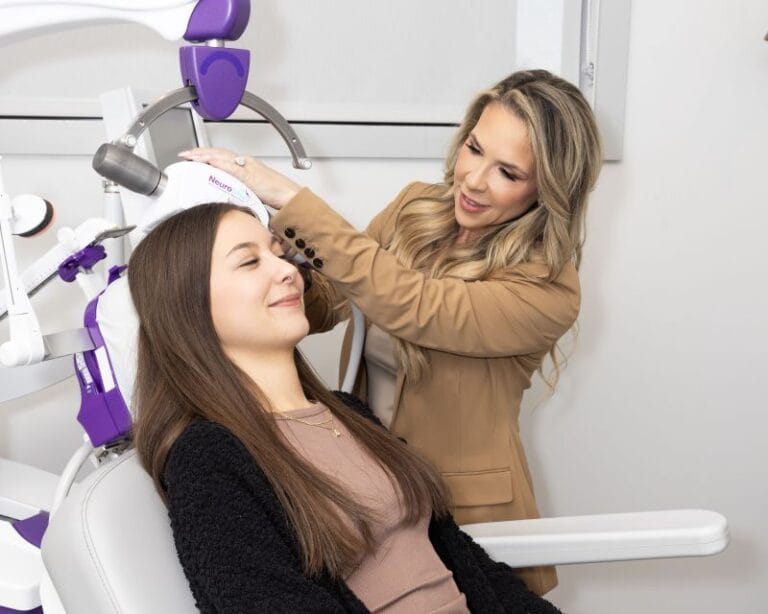
Explore how Embracing Life Wellness Center supports mental wellness through compassionate care and advanced treatments like NeuroStar TMS.
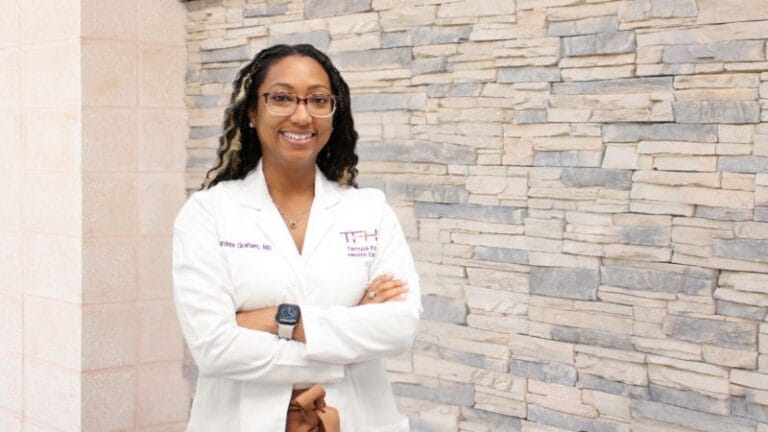
Read about Dr. Charisse Graham and how she supports teens with compassionate, expert care at Tampa Family Health Centers.
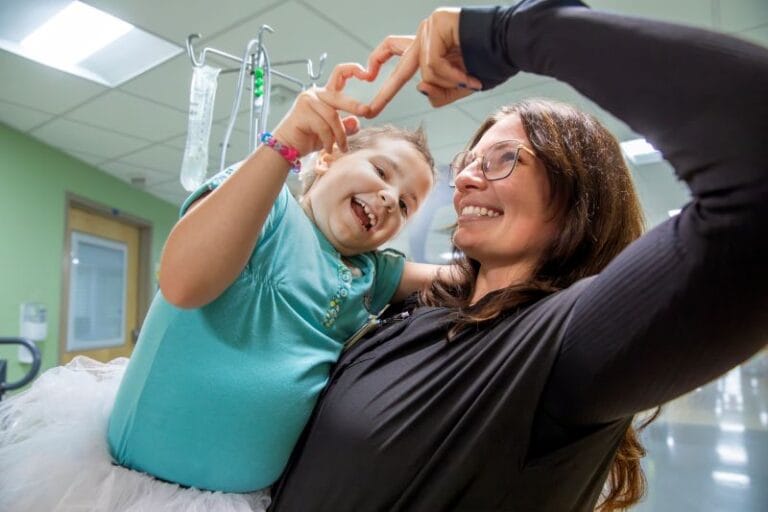
Read about a former patient-turned-nurse at Johns Hopkins who now cares for kids on the same floor where she once battled leukemia herself.
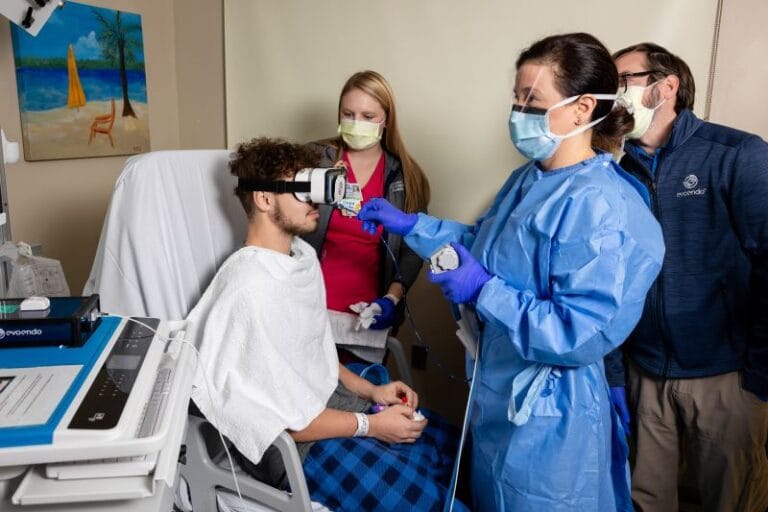
Learn about eosinophilic esophagitis and how Tampa General Hospital is treating it with a safe, sedation-free procedure for kids.
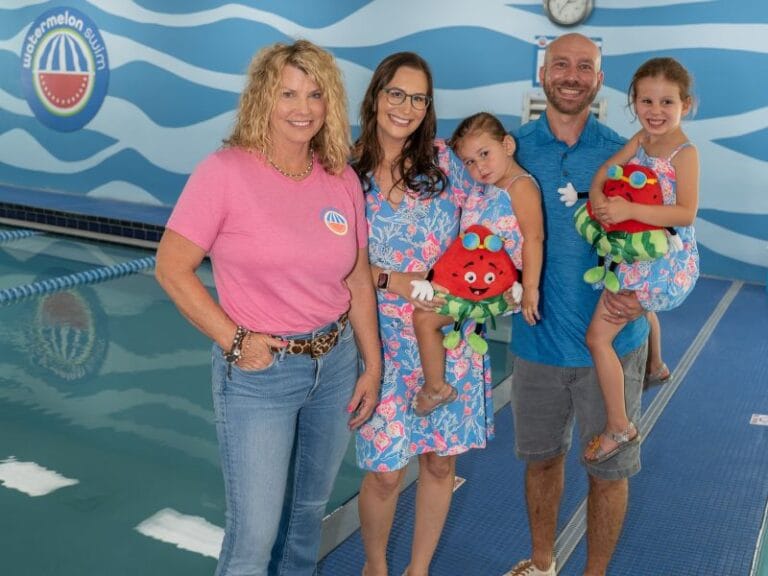
Learn about the importance of water safety through one family’s story and why being prepared makes all the difference around water.
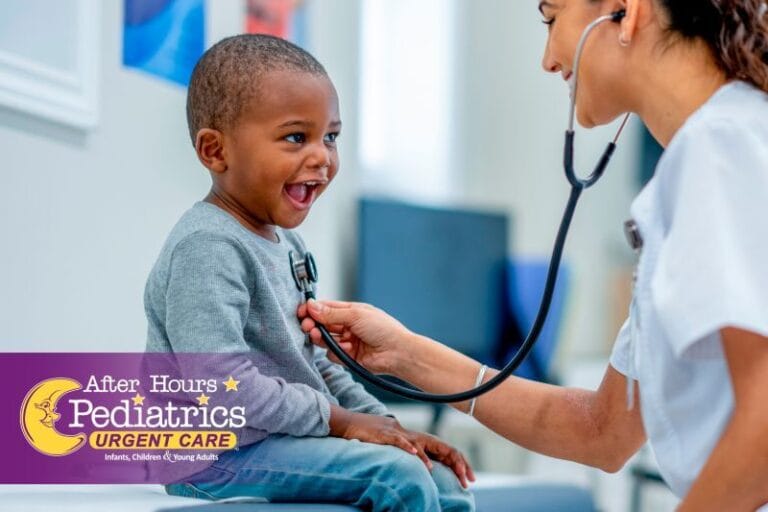
Knowing where to turn when your child needs urgent care, a trip to the ER or primary care is one of the most important decisions you will make.
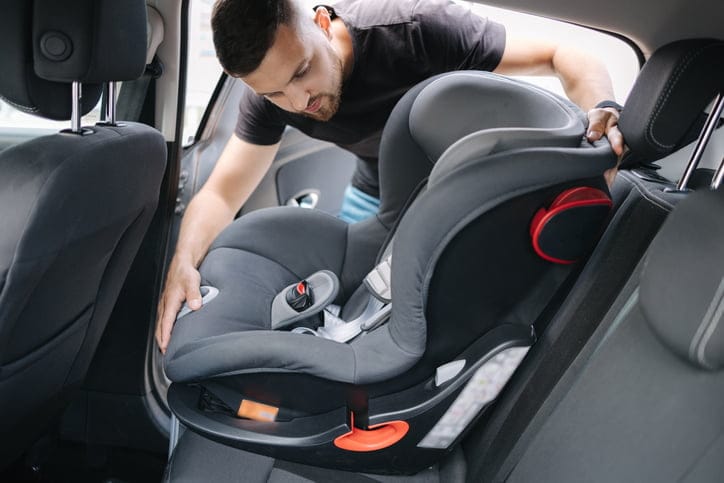
Target’s Car Seat Trade-In program returns September 15-28, 2024. You can trade in your old car seats in exchange for a Target Circle Bonus.
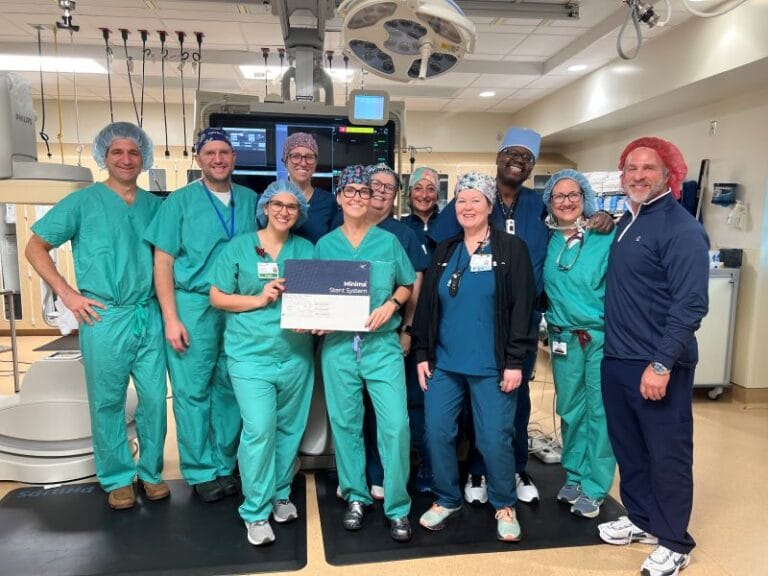
Read about the St. Joseph’s Children’s Infant Cardiac Stent and its impact on treating newborns with heart conditions.

Read Julian’s incredible journey with Congenital Diaphragmatic Hernia and the life-changing care that saved him.
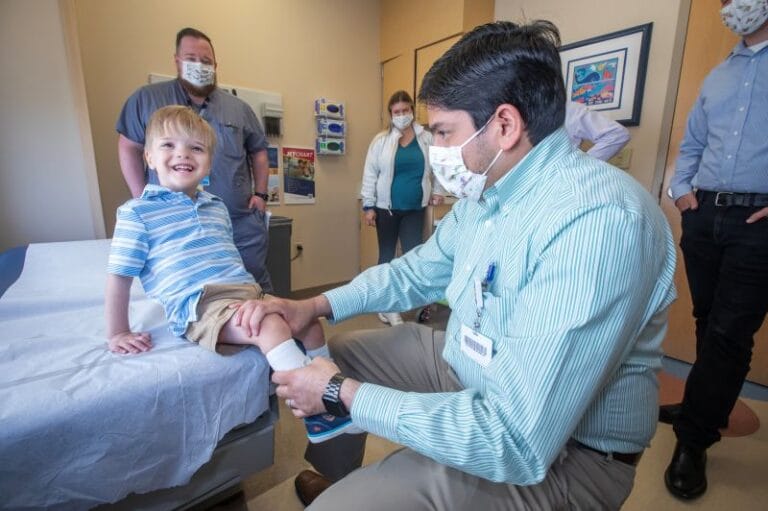
Read about Landon’s inspiring story as he overcomes the challenges of cerebral palsy, taking life-changing steps with expert treatment and therapy.

Discover why swim lessons during spring break are the perfect way to help kids gain water safety skills and confidence for the summer.
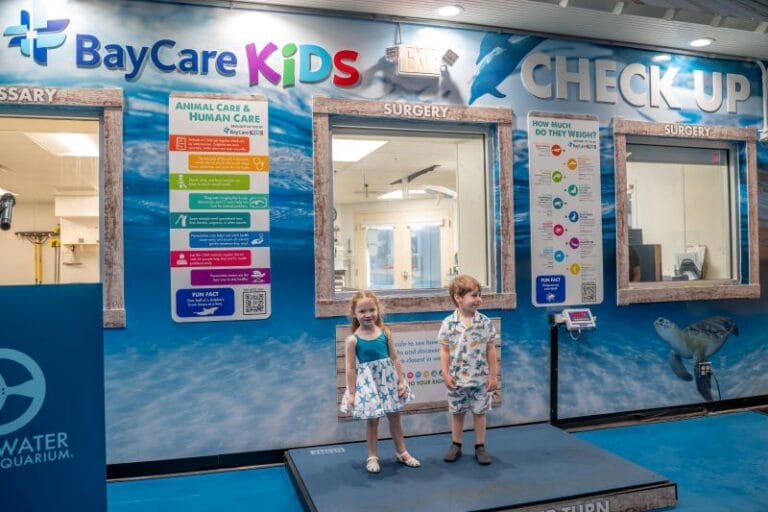
Discover how BayCare Kids partners with Clearwater Marine Aquarium to teach kids about wellness, with Dr. Christina Canody sharing health tips.
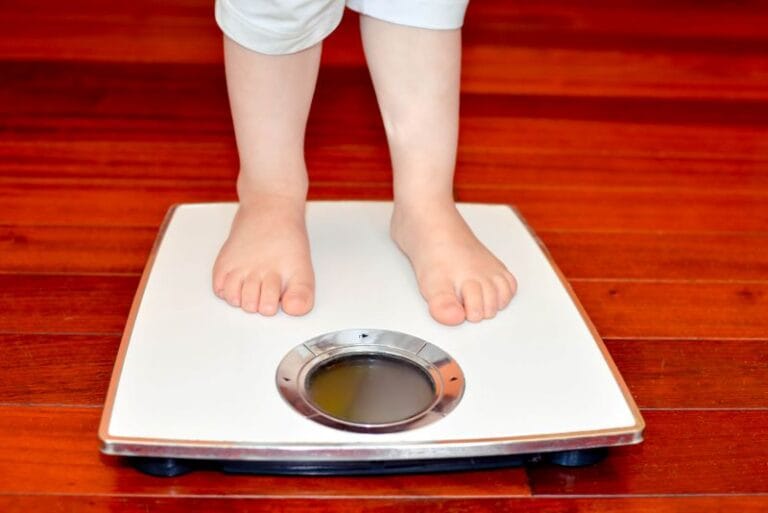
Did you know that excess weight in children can significantly impact their heart health and increase their risk of developing cardiovascular issues later in life? While many assume that high blood pressure, high cholesterol and abnormal heart muscle structure are only associated with adults, children with obesity can also suffer from these medical issues. The…
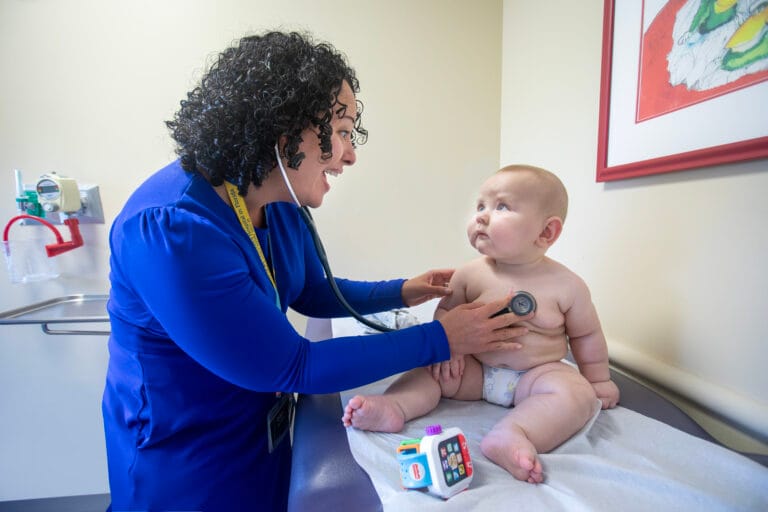
Read about a family’s journey through pediatric heart surgery at Johns Hopkins All Children’s, where expert care gave baby David a second chance.

Learn how pediatric cardiologists at St. Joseph’s Children’s Hospital deliver support and offer lifelong congenital heart care to their tiniest patients.

Learn about how the #1 children’s hospital in Florida, Johns Hopkins All Children’s, is expanding to Wesley Chapel with a new 56-bed hospital coming soon!

Discover the benefits of joining the Y this year, from childcare to group exercise classes, to personal training to swimming, youth sports and so much more!
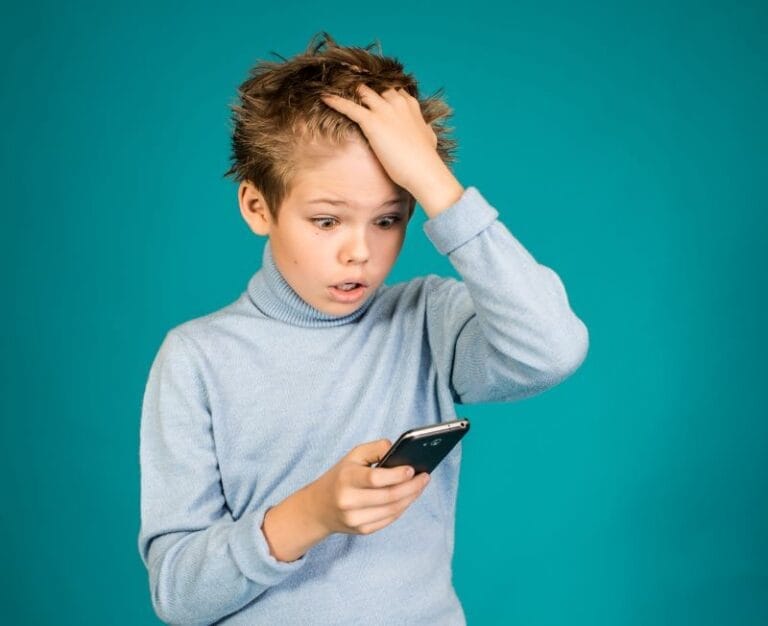
Dr. Jennifer Katzensein shares what brain rot is and how it impacts kids today. Learn her tips to help prevent it and encourage healthier habits.

Discover holiday toy safety tips and avoid dangerous toys that could harm your children by learning how to spot hidden hazards this holiday season.

Johns Hopkins All Children’s Hospital is sharing 10 expert tips for setting family goals for the new year and how goal setting helps build lifelong skills and to strengthen family bonds.

Learn what sets Tampa General’s pediatric trauma care at Muma Children’s Hospital apart, earning ‘Level 1’ service as one of only three in the state.
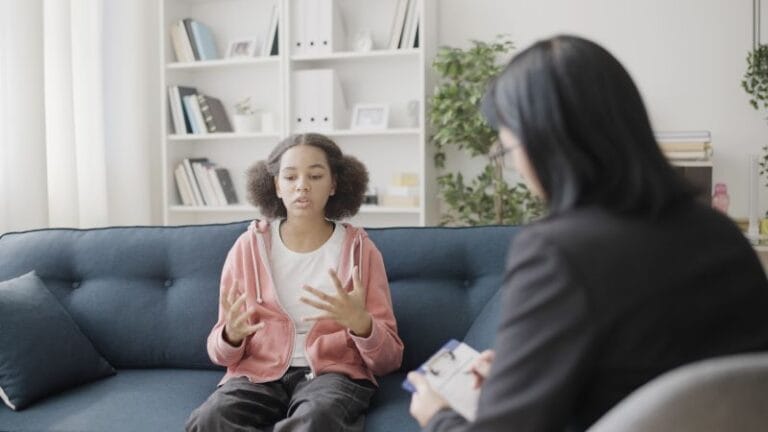
Learn how Tampa Family Health Centers is here to support parents and their children, offering behavioral health services in a safe space.
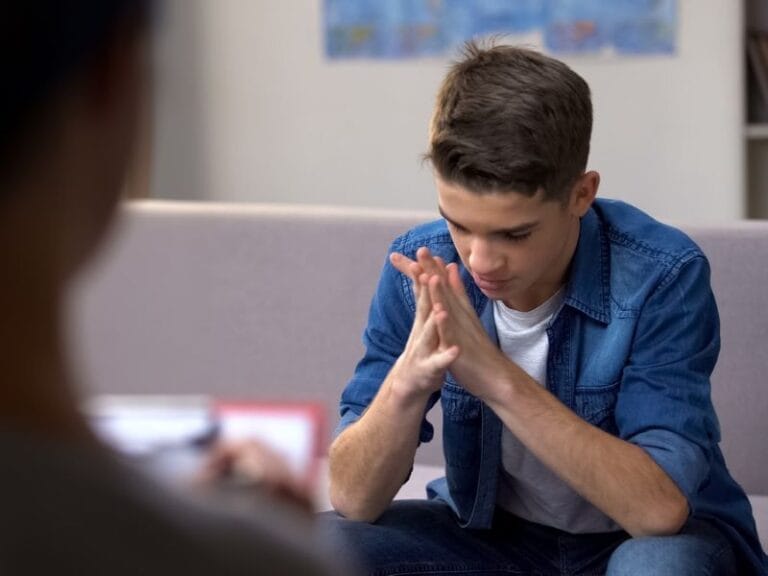
The Center for Behavioral Health at Johns Hopkins All Children’s Hospital is sharing their top 10 tips to help your child cope following the stress of hurricanes.

St. Joseph’s Women’s Hospital is turning 50! Take a look back through time celebrating 50 years of the Hospital’s care and impact on the Tampa Bay community.
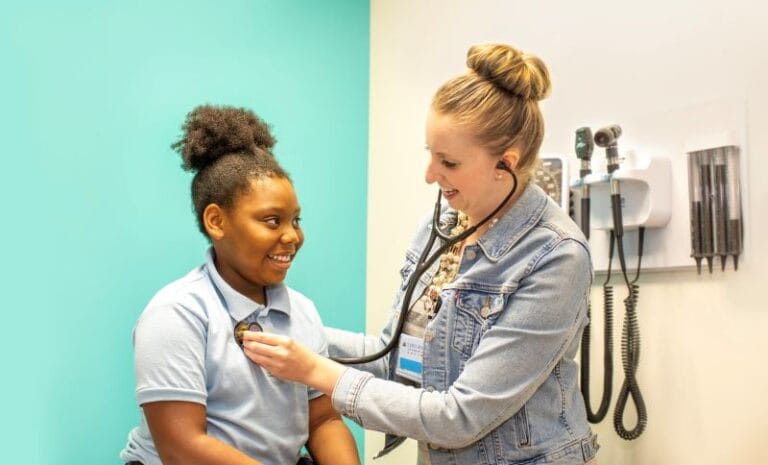
Johns Hopkins All Children’s Hospital will soon offer a new service — an after-hours pediatric urgent care at the hospital’s outpatient care location in Tampa. The service is expected to open in early 2025, on weekday evenings, weekends and holidays. Sickness or injury can happen at any time and sometimes kids need care outside of…

When Nick DeCastro, a 2024 graduate of Steinbrenner High School, organized a peer-led intervention with the students he observed bullying others, he earned recognition from the school’s resource officer, Deputy Anthony Bennett. He also received Hillsborough County’s Anti-Bullying Advisory Committee’s annual Anti-Bullying Award for his courageous stand against bullying. Recognizing and Preventing Bullying The Situation…
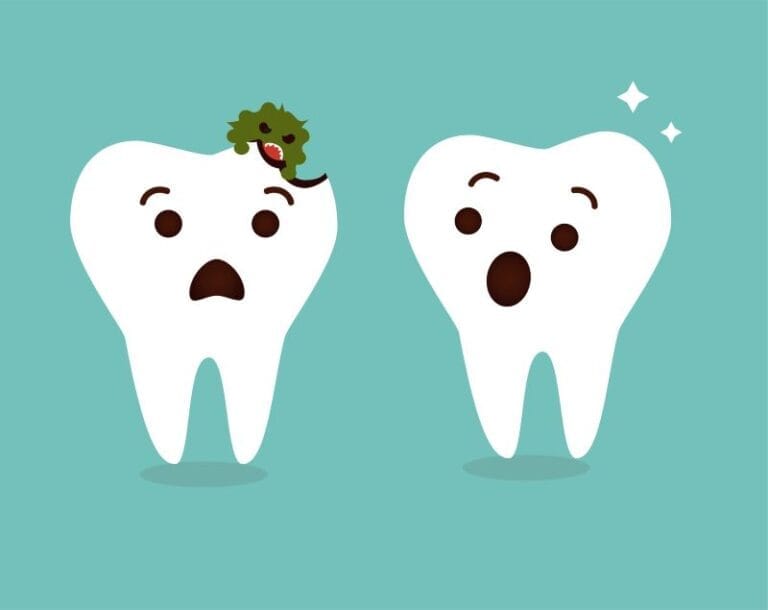
It’s the season of candy, candy and MORE candy, making it the perfect time to ask … what exactly is the science behind cavities? Will an all-night session of snacking on Halloween candy really cause a cavity? And how long should we actually be brushing our teeth? We’re turning to Dr. Michael McIlwain, with McIlwain…

In Hillsborough County and around the country, babies continue to die in unsafe sleeping environments. These tragedies are preventable, and Rebecca Bacon, executive director of the Children’s Board of Hillsborough County, wants parents and caregivers to know the rights and wrongs of safe sleep.

Anyone whose community participates in National/International Walk to School Day knows what a wholesome sight that morning presents, with little and big kids, parents and entire families strolling down neighborhood sidewalks like a scene from an old-fashioned movie. And it is a wonderful thing, until someone stops paying attention, and something bad happens. BayCare Kids…

Don’t be ghoulish and practice these Halloween safety tips from Johns Hopkins All Children’s Hospital and how to prevent common injuries.

The experts from BayCare Kids Wellness and Safety are sharing the best ways to keep your baby safe: while sleeping, on the road and at home.
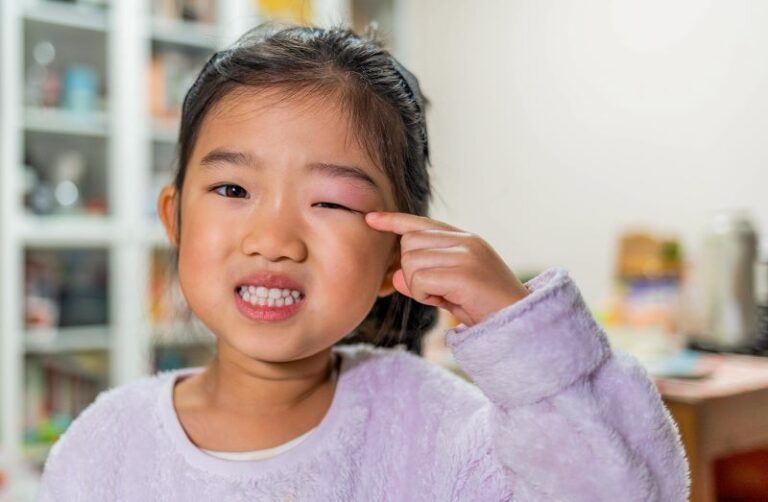
As we head back to school, the experts at After Hours Pediatrics are helping us get familiar with the causes, symptoms, and treatments for pink eye.
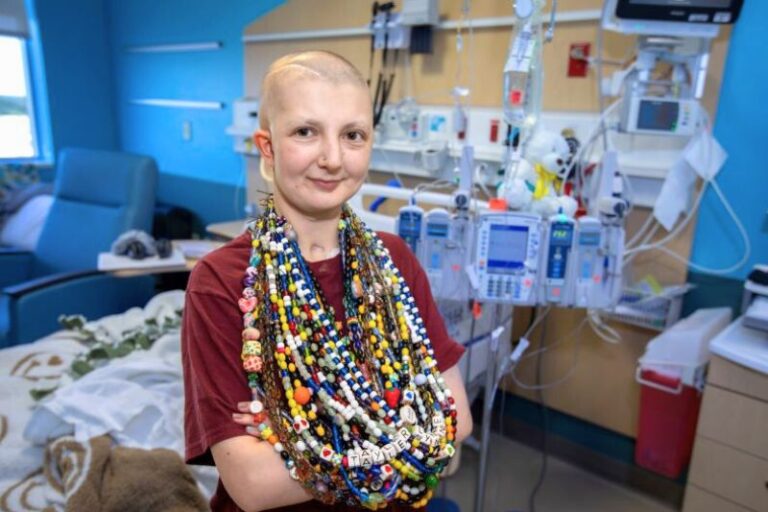
Read about Tayler Ellison’s touching journey with pediatric cancer and The Beads of Courage program which includes reminders of each treatment.
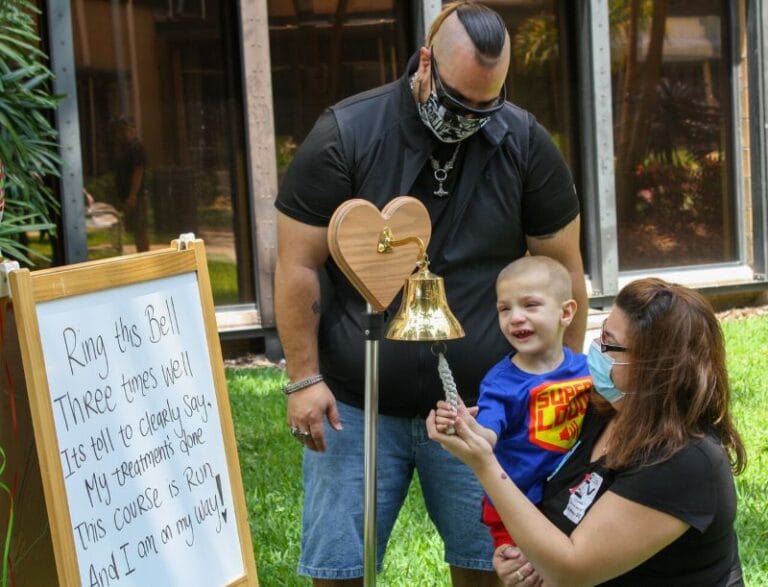
Get to know The Muma Children’s Hospital at TGH’s Pediatric Hematology/Oncology Program which provides top-notch care and cutting-edge treatments for its patients.
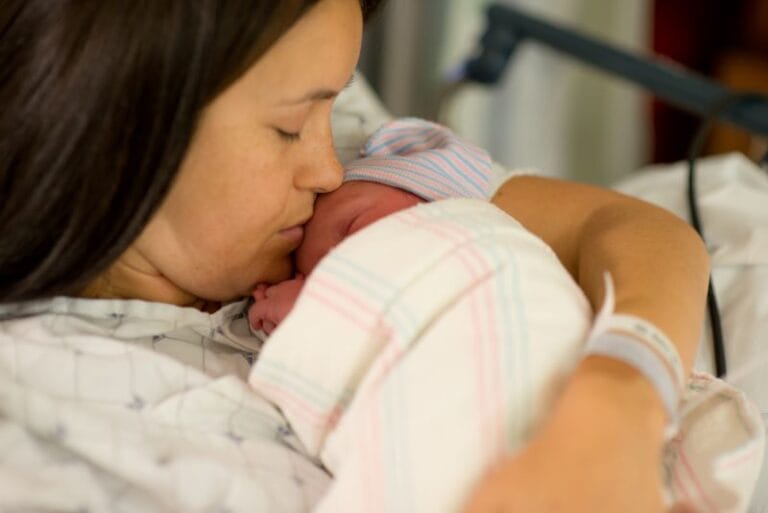
A wave of impressive honors underscores why the Women’s Institute at Tampa General Hospital (TGH) provides the gold standard of care for a full range of women’s health services. Consider that the institute recently received the highest honor from a national accrediting body, earning Level IV maternal care designation from The Joint Commission—literally the gold…
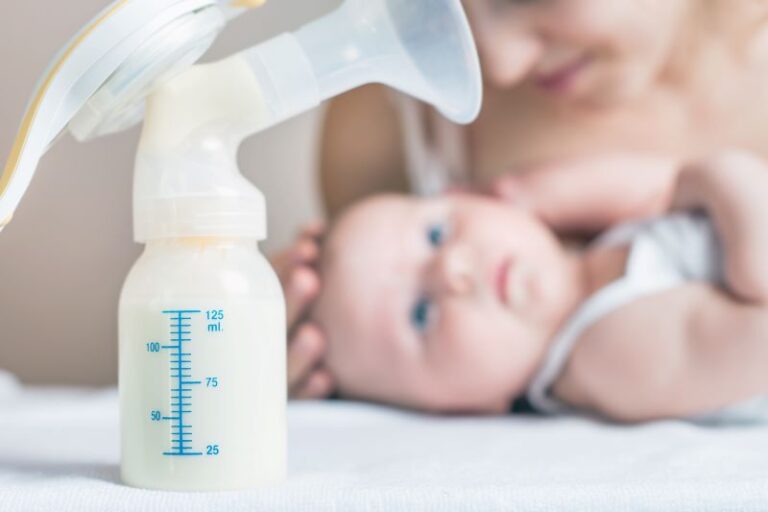
Breastfeeding provides many bonding and health benefits for both mom and baby, and many moms may choose to pump, whether it be exclusively or times when they are away from the baby. August is National Breastfeeding Awareness Month which aims at educating and celebrating breastfeeding moms. Lactation consultants are a great resource and can help…
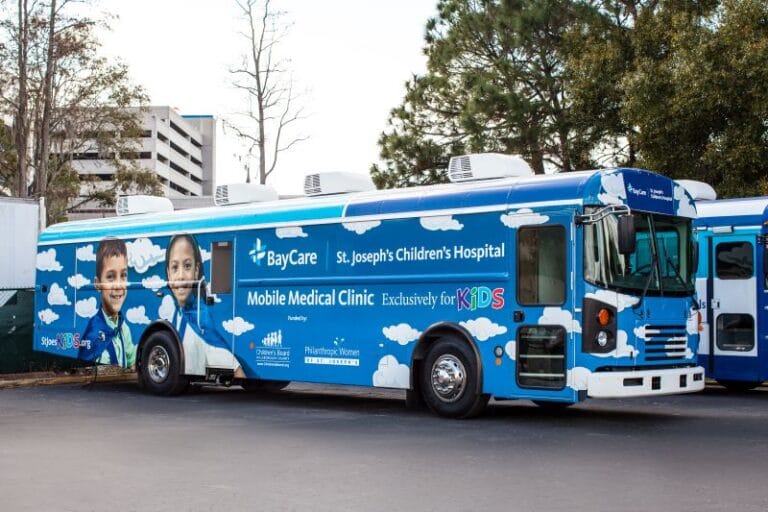
In the early 2000s, there was a national push to increase immunization rates for children. In 2004 in Tampa, Florida, St. Joseph’s Children’s Hospital responded to the call by putting together the Mobile Medical Clinic (MMC)—a bus with a registered nurse, a nurse practitioner and a program coordinator that drove around to underserved areas. That…
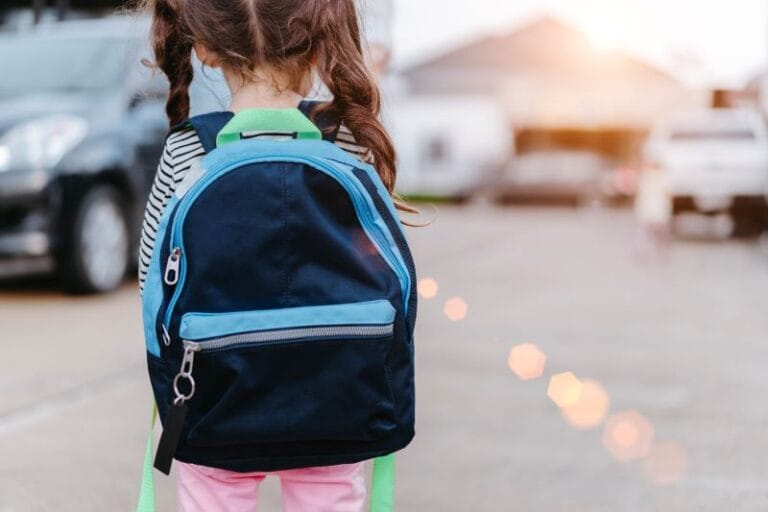
Carrying too much weight in a backpack or wearing it the wrong way can lead to unnecessary pain and strain for your child. When shopping for your child’s school backpack this month and helping them load it for school, take these steps to avoid potential health problems. Choosing a Backpack Choose a backpack with…

Florida unfortunately leads the nation in child drownings under the age of 5, most of which happen in a residential pool, but there are steps parents can take to avoid a drowning tragedy.

Your children may fight bedtime as strenuously as they can, but here’s the real truth from the mouth of babes: Sixty percent of middle schoolers and 70 percent of high schoolers admit that they do not get adequate sleep. And that’s just awful, according to Dr. Luis Ortiz, a physician at the Sleep Center of…
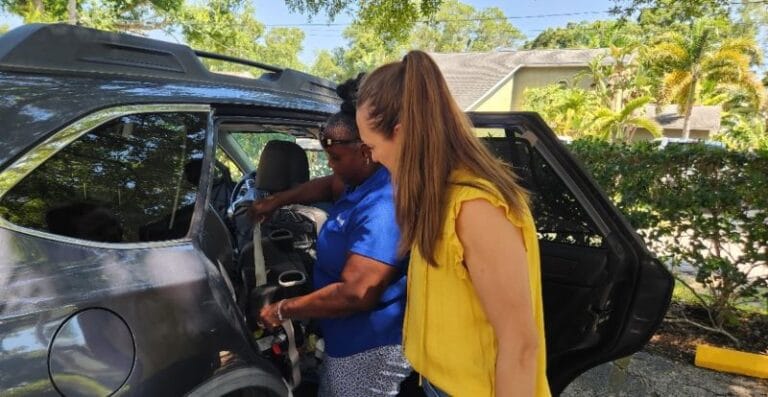
The research is out there, friends. Many parents and caregivers are not using their children’s car seats correctly. We’re turning to the experts to find out how to correct common mistakes.

From swim safety to beach hazards and travel reminders, Muma Children’s Hospital at TGH has a few reminders to keep kids safe this summer.
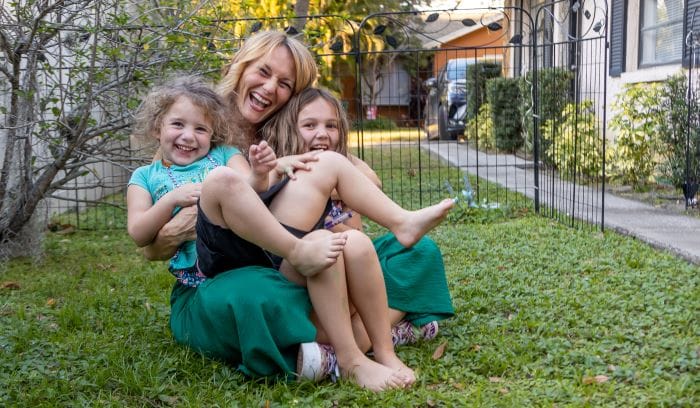
Tampa Mom and Women’s Meditation Network founder, Katie Krimitsos, is sharing her new podcasts supporting meditation for kids!
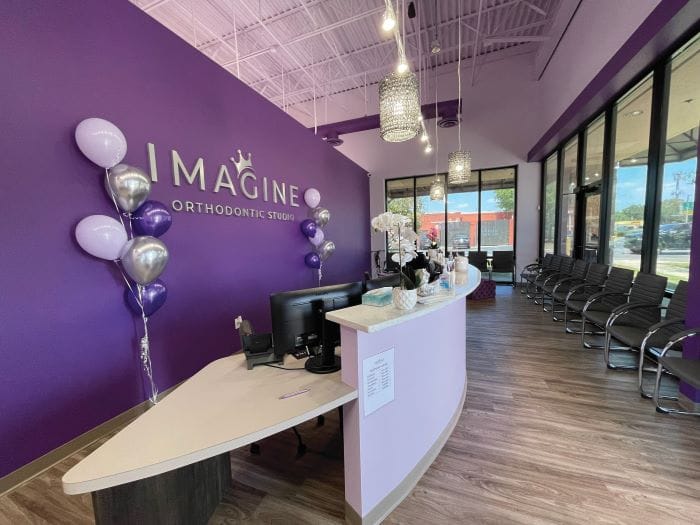
Led by an elite team of board-certified orthodontists, Imagine Orthodontic Studio strives to provide our patients with a fast, fun and affordable experience in an energetic, boutique-style environment. Imagine serves patients in Tampa, St. Pete, Clearwater, Lakeland and Orlando, and we’re dedicated to providing exceptional care and beautiful results. We cater to each patient’s unique…
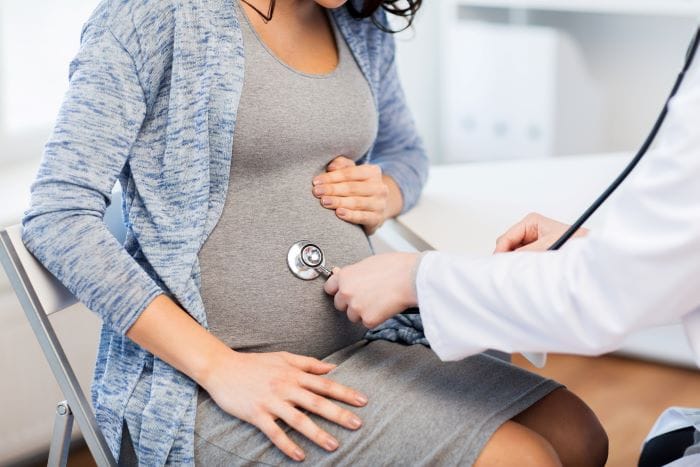
St Joseph’s Women’s Hospital Proves its Commitment to Top-Notch Care for Mothers-to-Be For the expert doctors, nurses, technicians and all the other unsung heroes who deliver babies at St. Joseph’s Women’s Hospital, this news did not come as a surprise: The facility just attained the highest level of certification in Maternal Care by The Joint…
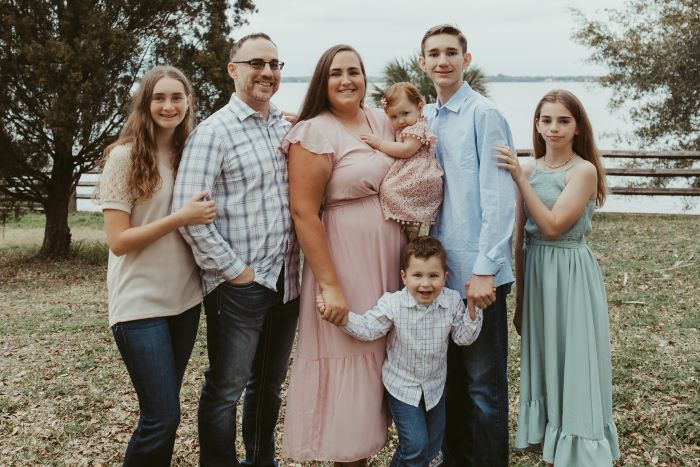
Dr. Jamie Decker is a dedicated father of five who juggles the demands of his medical career with the joys of fatherhood. Decker is passionate about both of the hats that he wears as a dad and a cardiologist in the Heart Institute at Johns Hopkins All Children’s Hospital, where he specializes in electrophysiology. “It’s…
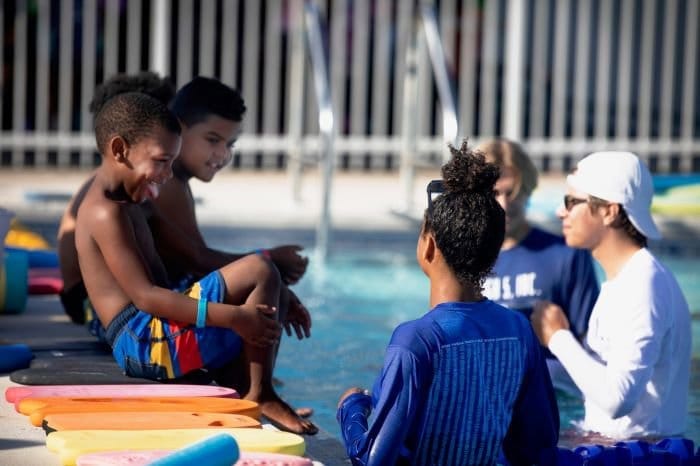
Dive into the world of water safety with High 5, Inc.’s Water Warriors program. Empowering Hillsborough County’s youth with life-saving skills, this initiative offers free swimming lessons and crucial safety education for families, ensuring every splash leads to a safer tomorrow.

Navigating the challenges of pregnancy and postpartum life can be overwhelming, but you’re not alone. Understanding perinatal mental health is crucial for both moms and their families, offering a pathway to support, healing, and stronger connections with your little one.